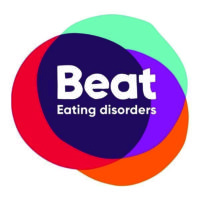Eating disorders
-

Beat – helping those affected by eating disorder
Beat is the UK’s eating disorder charity, and is a champion, guide and friend to all affected by these serious mental illnesses.
Read more -

Understanding eating disorder susceptibility requires an integrated sociological, biological and genetic approach
In 2015, Kristen Culbert, Sarah Racine and Kelly Klump compiled a Research Review on the underlying causes of eating disorders for the Journal of Child Psychology and Psychiatry.
Read more -

Expressed emotion varies with eating disorder diagnosis
Unique patterns of expressed emotion characterize communication within families with children affected by eating disorders, according to new research. Researchers across the USA recruited 215 adolescents (aged 12-19 years) with eating disorders and their families, and asked them to complete the Standardized Clinical Family Interview.
Read more -

PAPYRUS – working for prevention of suicide in young people
Every year many thousands more attempt or contemplate suicide, harm themselves or suffer alone, afraid to speak openly about how they are feeling. PAPYRUS strongly believes that many young suicides are preventable.
Read more -

Clinical characteristics of adolescents referred for treatment of depressive disorders
Low mood and depression often emerge during adolescence and are associated with long-term difficulties including increased risk of developing other mental health disorders, educational underachievement, low income/unemployment, and risk of suicidal behaviour.
Read more -

The origins of fussy eating in young children
As young children make the transition from a solely milk-based diet to a ‘family diet’, they are gradually introduced to increasing numbers of foods. While some children happily accept novel flavours and textures and enjoy widening their dietary repertoire, many are hesitant or even suspicious about trying new foods.
Read more -

Eating Disorders
Eating disorders: an introduction to anorexia nervosa, bulimia nervosa and other eating disorders. From this topic guide, you can find the latest blogs, events, publications, videos and podcasts.
Read more -

Self image estimations impact on mental health
Our overall estimation of “self image” is thought to be based on various parameters, such as perceptions of body image, mental function and social attitude. Now, a study by Maria Di Blasi and colleagues has investigated the extent by which these different parameters can influence psychological well-being.
Read more -

Looking back on 2017 to go forward in 2018
At the journals’ editorial office, we have been reflecting on 2017. Have we continued to improve our service offering to our authors and reviewers? Have we improved our systems and workflows to make the editors’ work at least a tiny bit easier? Have we engaged actively with the editorial and advisory board members and the wider research community?
Read more -

Defining the familiar: the birth of Avoidant or Restrictive Food Intake Disorder
Dr Rachel Bryant-Waugh has seen many changes in the 30 years she has spent helping children and adolescents overcome their eating disorders. Among these changes was the 2013 inclusion of a new disorder in the psychiatrists’ bible – the DSM.
Read more